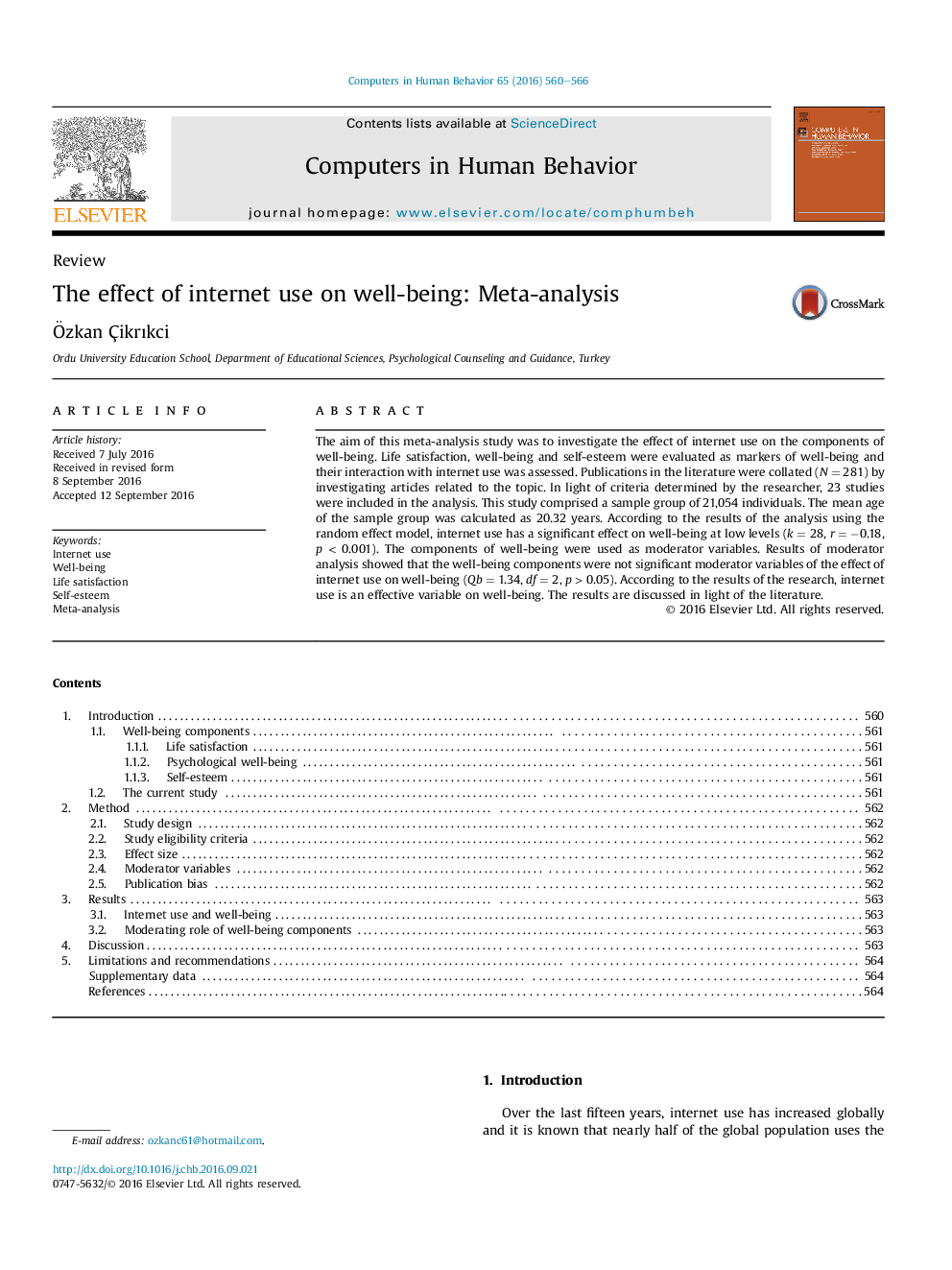| Article ID | Journal | Published Year | Pages | File Type |
|---|---|---|---|---|
| 4937766 | Computers in Human Behavior | 2016 | 7 Pages |
Abstract
The aim of this meta-analysis study was to investigate the effect of internet use on the components of well-being. Life satisfaction, well-being and self-esteem were evaluated as markers of well-being and their interaction with internet use was assessed. Publications in the literature were collated (N = 281) by investigating articles related to the topic. In light of criteria determined by the researcher, 23 studies were included in the analysis. This study comprised a sample group of 21,054 individuals. The mean age of the sample group was calculated as 20.32 years. According to the results of the analysis using the random effect model, internet use has a significant effect on well-being at low levels (k = 28, r = â0.18, p < 0.001). The components of well-being were used as moderator variables. Results of moderator analysis showed that the well-being components were not significant moderator variables of the effect of internet use on well-being (Qb = 1.34, df = 2, p > 0.05). According to the results of the research, internet use is an effective variable on well-being. The results are discussed in light of the literature.
Related Topics
Physical Sciences and Engineering
Computer Science
Computer Science Applications
Authors
Ãzkan Ãikrıkci,
